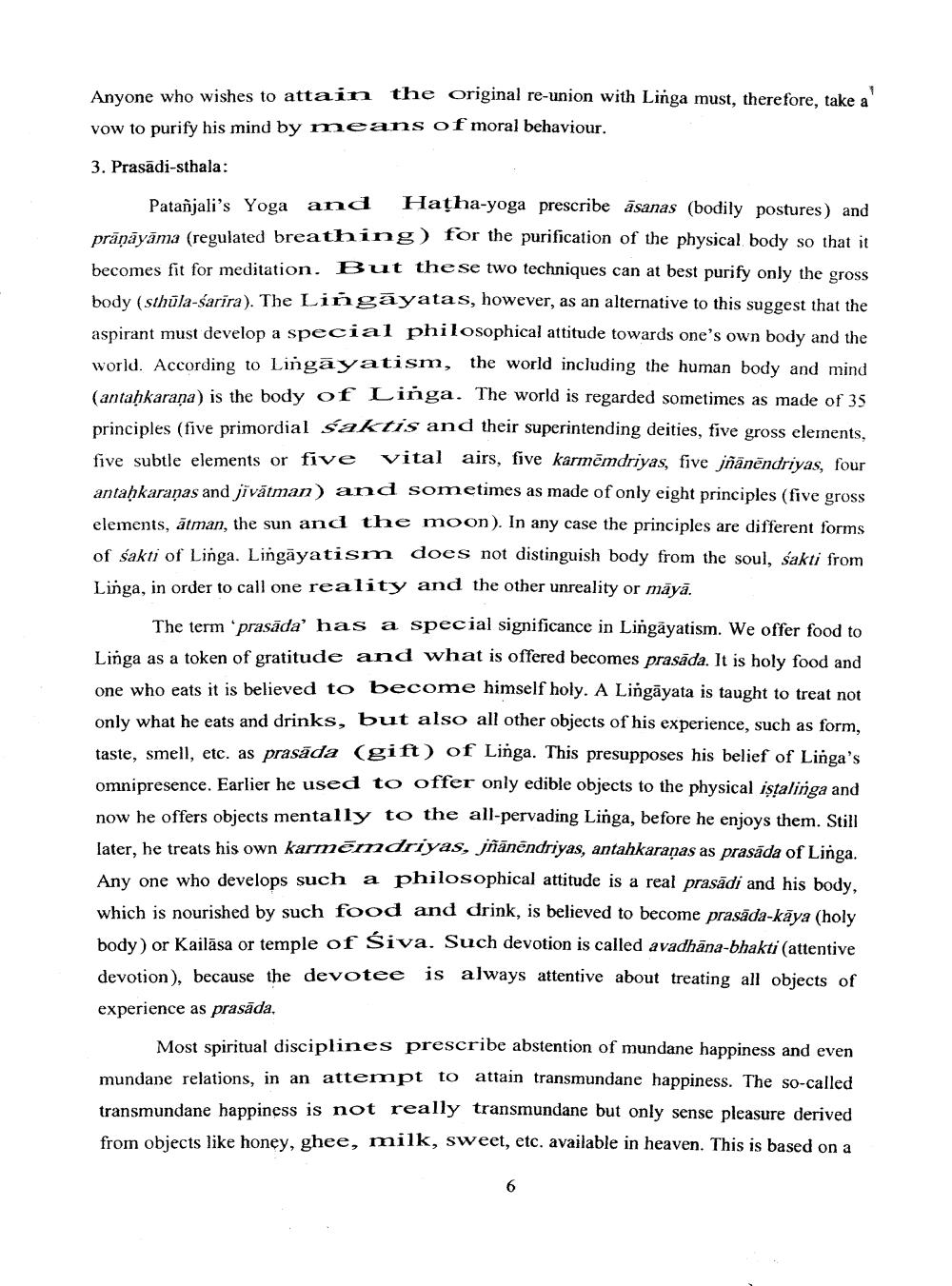Book Title: Synthesis of Yoga in Lingayatism Author(s): N G Mahadevappa Publisher: N G Mahadevappa View full book textPage 6
________________ Anyone who wishes to attain the original re-union with Linga must, therefore, take a vow to purify his mind by m eans of moral behaviour. 3. Prasādi-sthala: Patanjali's Yoga and Hatha-yoga prescribe asanas (bodily postures) and prānāyāma (regulated breathing) for the purification of the physical body so that it becomes fit for meditation. But these two techniques can at best purify only the gross body (sthūla-sarira). The Lingayatas, however, as an alternative to this suggest that the aspirant must develop a special philosophical attitude towards one's own body and the world. According to Lingayatism, the world including the human body and mind (antahkarana) is the body of Linga. The world is regarded sometimes as made of 35 principles (five primordial saktis and their superintending deities, five gross elements. five subtle elements or five vital airs, five karmēmdriyas, five jñanendriyas, four antahkaranas and jīvātman) and sometimes as made of only eight principles (five gross elements, ātman, the sun and the moon). In any case the principles are different forms of sakti of Linga. Lingayatism does not distinguish body from the soul, sakti from Linga, in order to call one reality and the other unreality or māyā. The term prasāda' has a special significance in Lingayatism. We offer food to Linga as a token of gratitude and what is offered becomes prasāda. It is holy food and one who eats it is believed to become himself holy. A Lingāyata is taught to treat not only what he eats and drinks, but also all other objects of his experience, such as form, taste, smell, etc. as prasada (gift) of Linga. This presupposes his belief of Linga's omnipresence. Earlier he used to offer only edible objects to the physical isalinga and now he offers objects mentally to the all-pervading Linga, before he enjoys them. Still later, he treats his own karmēmdriyas, jñanēndriyas, antahkaranas as prasāda of Linga. Any one who develops such a philosophical attitude is a real prasādi and his body. which is nourished by such food and drink, is believed to become prasāda-käya (holy body) or Kailāsa or temple of Siva. Such devotion is called avadhana-bhakti (attentive devotion), because the devotee is always attentive about treating all objects of experience as prasāda. Most spiritual disciplines prescribe abstention of mundane happiness and even mundane relations, in an attempt to attain transmundane happiness. The so-called transmundane happiness is not really transmundane but only sense pleasure derived from objects like honey, ghee, m ilk, sweet, etc. available in heaven. This is based on aPage Navigation
1 ... 4 5 6 7 8 9 10 11 12 13 14 15 16
